
The Connection Between Gut Health and the Immune System
Immune support From Fermented Foods

Our bodies are amazing ecosystems, and the gut, often referred to as the “second brain,” is at the center of it all.Your gut is like a secret garden. It’s home to trillions of microorganisms working together to keep you healthy. When this garden flourishes, your body thrives, and your immune system becomes a powerful force, ready to protect you from harmful invaders. But when the garden gets neglected, things can go haywire, leading to illness, inflammation, and fatigue and has an enormous impact on your overall health.
Gut Health: The Foundation of Your Immune System
Your gut isn’t just a place where food gets broken down; it’s a central hub for your immune system. In fact, about 70% of your immune system resides in your gut! This means that when you take care of your gut, you’re also giving your immune system the tools it needs to defend your body against harmful bacteria, viruses, and even inflammation.
Here’s how it works:
- Gut Barrier: Your gut acts as a protective wall, keeping harmful substances out of your bloodstream. When the gut barrier is strong, it helps prevent unwanted invaders from slipping through. A healthy microbiome strengthens this barrier.
- Training Ground for Immune Cells: The gut is where your immune cells learn to distinguish between friend and foe. The beneficial bacteria in your gut “train” these cells to respond appropriately, so they don’t attack your body or overreact to harmless substances.
- Anti-Inflammatory Helpers: The microbes in your gut produce wonderful compounds that calm inflammation, supporting your body in staying balanced and resilient.
Top Fermented Foods for Gut Health
 Kefir and its Benefits
Kefir and its Benefits
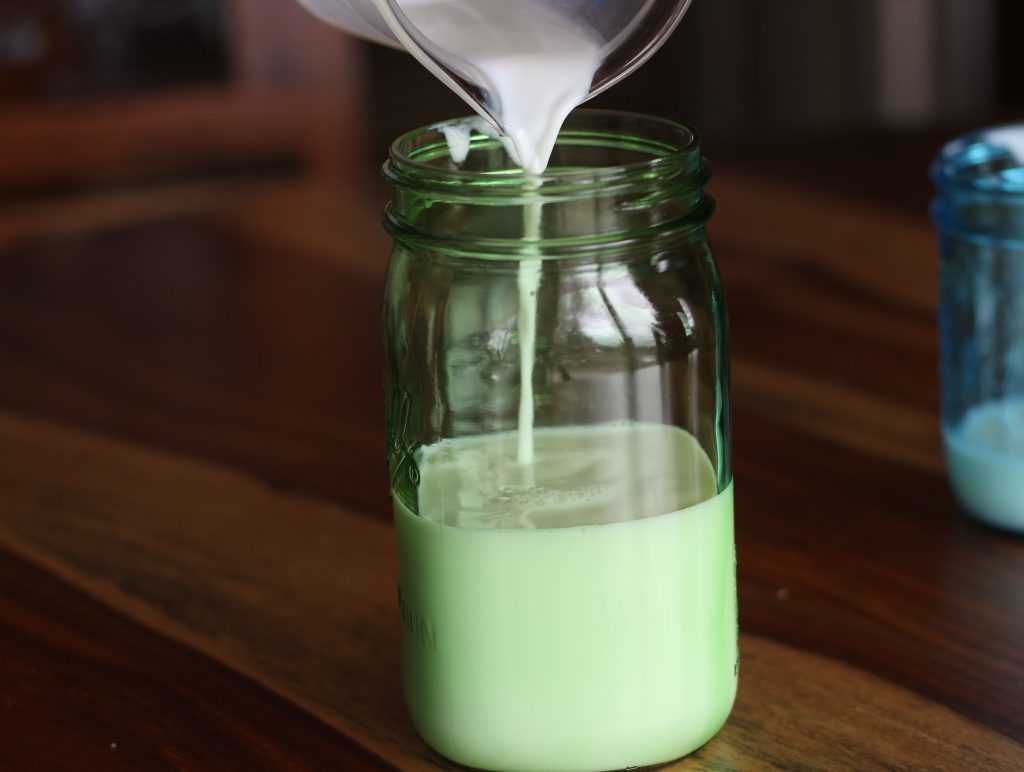 There are many different types of fermented foods that can benefit gut health and, in turn, boost immune function. Here are a few of the beneficial bacteria found in the first type of fermented food - kefir:
There are many different types of fermented foods that can benefit gut health and, in turn, boost immune function. Here are a few of the beneficial bacteria found in the first type of fermented food - kefir:
- Lactobacillus kefiri: Found almost exclusively in kefir, it helps protect the gut by inhibiting harmful bacteria like Salmonella and E. coli.
- Lactobacillus casei: Strengthens the body’s resistance to infections by regulating immune responses and promoting the production of anti-inflammatory compounds, helping to prevent excessive immune reactions.
- Lactobacillus rhamnosus: Enhances immune activity, reduces allergy symptoms, and supports recovery from respiratory infections.
- Lactococcus lactis: Modulates immune responses, reduces allergies, and promotes healthy digestion.
- Leuconostoc mesenteroides: Produces antimicrobial compounds that inhibit pathogens, helping to prevent infections and support gut health.
- Lactobacillus helveticus: Stimulates the production of immune cells such as natural killer (NK) cells, enhancing the body’s ability to fight infections.
- Lactobacillus cellobiosus: Aids in digesting complex carbohydrates, improving nutrient absorption, and fostering the growth of other beneficial bacteria.
- Lactobacillus kefiranofaciens: A kefir-exclusive strain that helps maintain a balanced microbiome by producing kefiran, which has anti-inflammatory and immune-regulating effects. It also supports digestive health and may alleviate gastrointestinal discomfort.
- Lactobacillus parakefiri: Supports immune health by boosting the production of short-chain fatty acids (SCFAs), which reduce inflammation. It also produces antimicrobial compounds that enhance the gut’s defense system. Learn More About Kefir
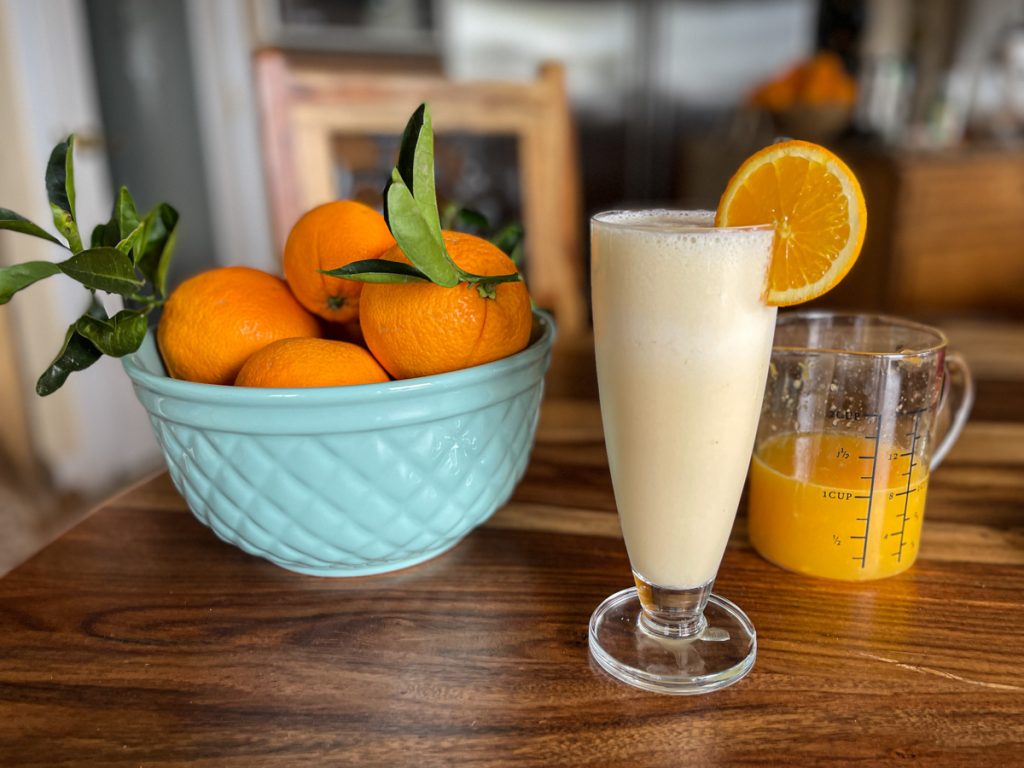 A Few of the Beneficial Yeasts in Kefir
A Few of the Beneficial Yeasts in Kefir
- Dekkera anomala / Brettanomyces anomalus: Plays a role in fermenting polyphenols and other plant-based compounds, transforming them into bioavailable forms that enhance detoxification processes and reduce the body’s toxic burden.
- Torulaspora delbrueckii: Produces bioactive compounds that inhibit harmful bacteria and fungi, supporting a balanced microbiome. It can also help prevent the overgrowth of pathogens like Candida, reducing the risk of infections.
- Zygosaccharomyces rouxii: Contributes to a balanced immune response by interacting with gut-associated immune cells, reducing inflammation, and helping prevent overactive immune reactions—especially beneficial for those with autoimmune conditions. It also aids in balancing blood sugar levels, may improve insulin sensitivity, and enhances the stability of probiotic communities, ensuring the microbial balance in kefir remains intact even in challenging conditions. Learn More About Kefir
 Cultured Vegetables and L. Plantarum
Cultured Vegetables and L. Plantarum

Sauerkraut - fermented cabbage - is rich in fiber, vitamins, and probiotics. One of the standout probiotics produced during fermentation is Lactobacillus plantarum (L. plantarum). L. plantarum supports the immune system. It acts as a natural balancer, calming excessive inflammation that could otherwise lead to autoimmune issues. It also produces antioxidants that shield your cells from damage, promoting long-term wellness and vitality. You don't have to stop at sauerkraut—other cultured vegetables (like kimchi, pickles, and more) offer the same incredible benefits. Explore my recipe section to discover simple ways to incorporate these powerful foods into your diet and start feeling the difference
🥂 Kefir Soda with Bifidobacteria and Saccharomyces Boulardii
 Bifidobacteria strains in kefir soda support the immune system, enhance digestion, and with their ability to produce anti-inflammatory compounds help improve the gut barrier and strengthen the immune system.
Bifidobacteria strains in kefir soda support the immune system, enhance digestion, and with their ability to produce anti-inflammatory compounds help improve the gut barrier and strengthen the immune system.
S. boulardii is a probiotic yeast known for its ability to fight off harmful pathogens. Unlike many bacteria, S. boulardii can survive antibiotic treatments and prevent diarrhea and infections.
Plus, it's super bubbly, and you can change the flavor and make it taste any way you'd like!
 Kombucha, S. Boulardii, and B. Coagulans
Kombucha, S. Boulardii, and B. Coagulans
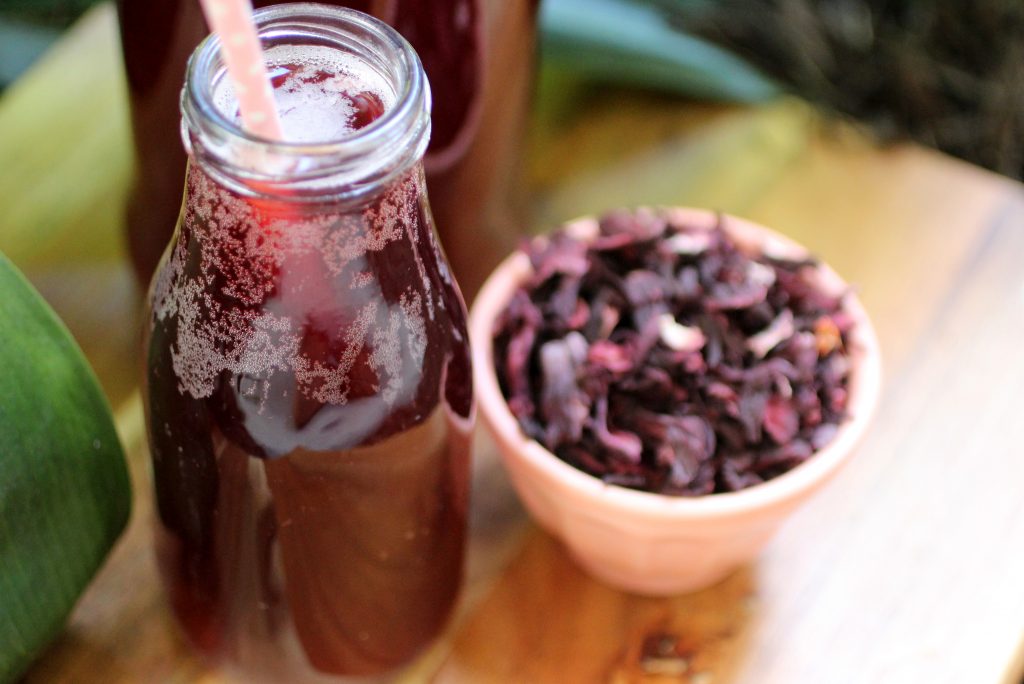 Kombucha is a fermented tea that provides probiotics, enzymes, and antioxidants. Like kefir soda, it contains S. boulardii. This probiotic yeast is known for fighting off harmful pathogens. Kombucha is also excellent for immune health as it regulates inflammation and helps the liver detox from harmful substances.
Kombucha is a fermented tea that provides probiotics, enzymes, and antioxidants. Like kefir soda, it contains S. boulardii. This probiotic yeast is known for fighting off harmful pathogens. Kombucha is also excellent for immune health as it regulates inflammation and helps the liver detox from harmful substances.
Bacillus coagulans is abundant in kombucha. It's a spore-forming probiotic that offers several health benefits, especially when included in fermented beverages like kombucha. Bacillus coagulans in kombucha promotes gut health by restoring microbial balance and reducing bloating, constipation, and diarrhea. It lowers chronic inflammation, boosts immune function by stimulating protective antibodies, and improves nutrient absorption. Additionally, it inhibits harmful bacteria, supports mental health through the gut-brain axis, and enhances resilience to infections—making kombucha a powerful drink for overall wellness. Learn More About Kombucha
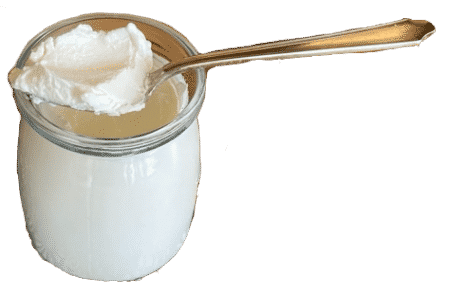 Yogurts
Yogurts
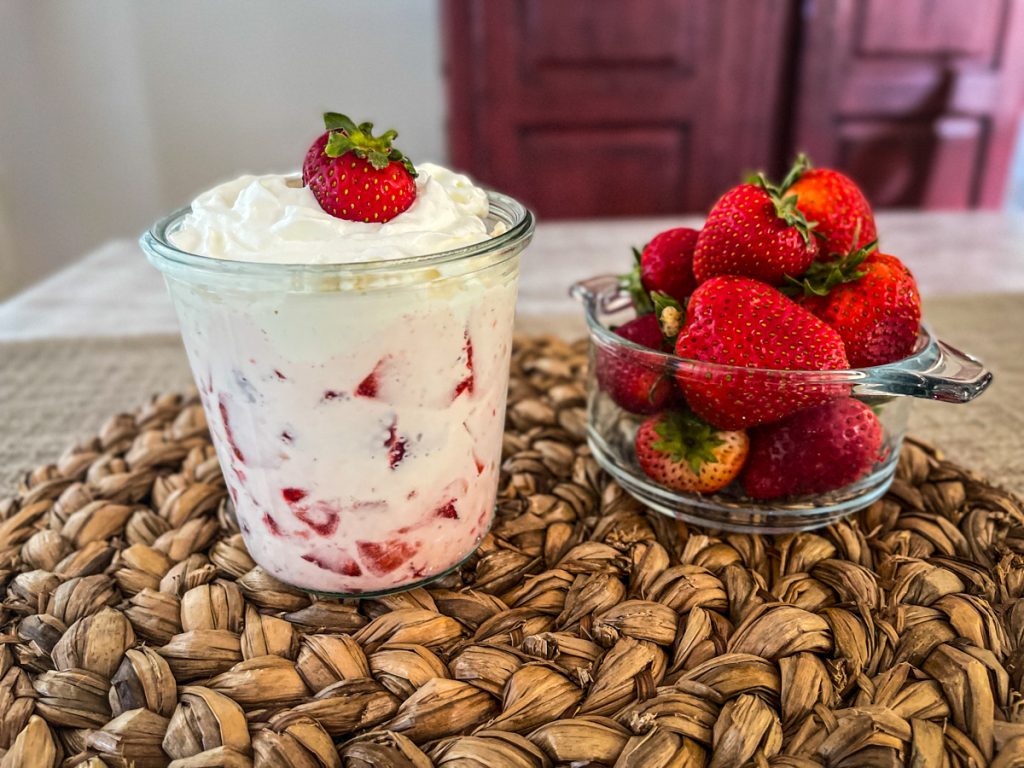 L. Reuteri and L. Gasseri Yogurt
L. Reuteri and L. Gasseri Yogurt
L. reuteri and L. gasseri are two powerful probiotic strains that offer targeted immune benefits when consumed through yogurt.
L. Reuteri: This strain enhances immune balance by promoting the production of regulatory T-cells, which prevent overactive immune responses and reduce inflammation. It also stimulates the release of antimicrobial peptides which help the body fight infections, and supports gut barrier integrity to keep harmful pathogens out of the bloodstream. Learn More about L. Reuteri Yogurt
L. Gasseri: Known for its anti-inflammatory effects, L. gasseri helps modulate immune responses, reducing the risk of chronic inflammation and autoimmune disorders. It promotes the production of IgA antibodies, which protect mucosal surfaces like the respiratory and digestive tracts, enhancing the body’s defense against infections. Learn More about L. Gasseri Yogurt
Yogurt Plus: Bifidobacteria is abundant in Yogurt Plus and is one of the most important groups of bacteria in the gut, particularly when it comes to immune health. It modulates immune responses and produces anti-inflammatory SCFAs like acetate, preventing immune overreactions and chronic inflammation. Bifidobacteria boosts IgA antibodies, protecting the gut, respiratory, and urogenital tracts from infections. Learn More about Yogurt Plus
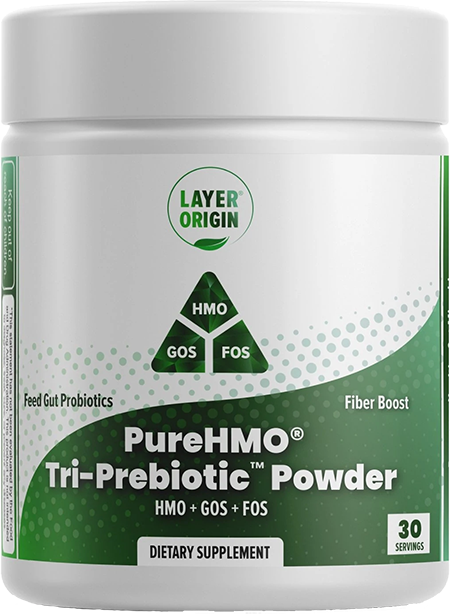 The Power of HMOs and Bifidobacteria
The Power of HMOs and Bifidobacteria
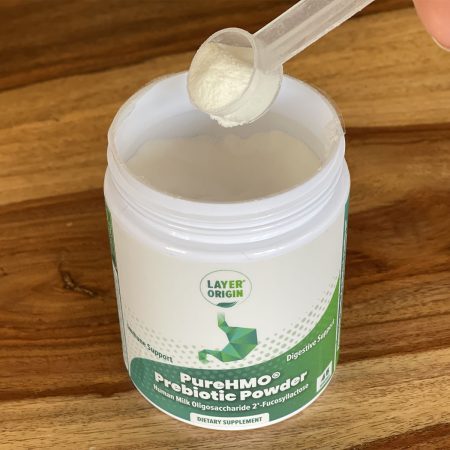 HMOs, or human milk oligosaccharides, are complex sugars found in human breast milk. But here’s the interesting part: babies can’t digest HMOs! So why would they be in breast milk? The answer — HMOs are food for the beneficial bacteria in the gut, specifically Bifidobacteria, which thrive on these sugars.
HMOs, or human milk oligosaccharides, are complex sugars found in human breast milk. But here’s the interesting part: babies can’t digest HMOs! So why would they be in breast milk? The answer — HMOs are food for the beneficial bacteria in the gut, specifically Bifidobacteria, which thrive on these sugars.
When a baby consumes breast milk, HMOs feed the Bifidobacteria in their gut, helping this beneficial bacteria grow and establish a healthy microbiome from the very start of life. This early colonization of Bifidobacteria is crucial because it helps train the immune system, strengthens the gut barrier, and reduces inflammation.
Even though we stop consuming breast milk as we grow, Bifidobacteria continue to play a key role in our gut health and immune function throughout life. It can diminish as we grow older, so you want to keep this strain strong, and it will keep you strong.
There are now HMO supplements available that mimic the function of HMOs in breast milk. These supplements are fermented and easy to take in your morning smoothie. They are designed to feed and nourish Bifidobacteria in the gut, helping to strengthen the immune system and support gut health. Click Here For HMOs
How to Incorporate Fermented Foods into Your Diet
Adding fermented foods to your daily routine doesn’t have to be difficult. Here are a few easy ways to get started:
- Start with a spoonful: If you’re new to fermented foods, start by adding a spoonful of sauerkraut or kimchi to your meals.
- Sip on kefir: Replace your usual snack or breakfast with a glass of kefir to introduce beneficial bacteria into your gut.
- Swap your soda for kombucha or kefir soda: Instead of sugary drinks, opt for these drinks to get a probiotic boost while quenching your thirst.
- Make yogurt your dessert: I use yogurt as dessert all the time. Sometimes, I just add a spoonful of jam and top it with whipped kefir topping. It tastes like dessert and feels like a treat!
- Add HMOs: to your morning smoothie or a glass of water.
Your Gut, Your Immune System, and You
When we take care of our gut, we’re not just improving digestion—we’re supporting our entire body. A healthy gut helps regulate inflammation, protects us from illness, and even boosts our mood and energy. And the best part? You can start feeling the benefits by simply incorporating a variety of fermented foods into your daily routine.
So, whether it’s a glass of kefir, a spoonful of sauerkraut, or a bowl of homemade L. reuteri yogurt, remember that you’re not just eating food—you’re nourishing your gut, fueling your immune system, and giving your body the love and care it deserves.
Listen To My Podcast
In this episode, we explore the fascinating connection between gut health and the immune system. Our gut is more than a digestive organ; it's a powerful hub for immune support. We'll uncover how fermented foods like kefir, kombucha, and yogurt play a crucial role in nurturing a healthy gut microbiome, which in turn strengthens our immune defenses. Join us as we dive into the science behind probiotics, gut barriers, and immune-balancing strains like Lactobacillus and Bifidobacteria. Discover simple ways to integrate these potent foods into your daily routine for a vibrant, resilient body!
Are you on the list?
Sign up today and I'll send you my free Getting Started Guide!
Each week I'll send you updates, tips, recipes, and more! You might even be a winner of my weekly giveaway! (starter cultures, memberships, and more!)
Come be a part of my cultured food family!


